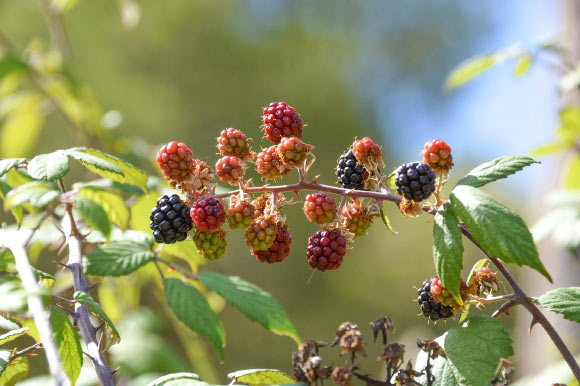Now Reading: Indian Scientists Achieve Genome Sequencing of Blackberry
-
01
Indian Scientists Achieve Genome Sequencing of Blackberry
Indian Scientists Achieve Genome Sequencing of Blackberry

Swift Summary
- Scientists at the University of Florida have developed a chromosome-scale genome assembly for a thornless tetraploid blackberry variety named BL1.
- The research aims to advance genetic analysis and improve cultivation techniques for blackberries, focusing on enhanced horticultural and nutritional traits.
- Blackberries are rich in anthocyanins, antioxidants, and dietary fibers, with notable health benefits.
- Global production exceeds 900,000 metric tons annually; they are the fourth most economically critically importent berry crop in the U.S.
– The U.S. produced 16,850 metric tons of processed and 1,360 metric tons of fresh blackberries in 2017.- In 2021, imports reached $519 million for fresh blackberries and $43 million for frozen ones (combined total: ~139,611 metric tons).
- This study utilized DNA sequencing to reconstruct the original genome sequence of BL1 (a tetraploid blackberry with four chromosome copies per cell).
- Researchers highlighted improved understanding of traits like thornlessness and anthocyanin production that could enhance fruit quality and disease resistance globally.
- Dr. Zhanao Deng emphasized the potential outcomes: better blackberry varieties that benefit growers and consumers.
Image:
!Blackberries
Image credit: Lin Animalart
Indian Opinion Analysis
India’s growing agricultural sector can draw meaningful insights from this study despite its focus on blackberry cultivation being chiefly relevant elsewhere. For Indian researchers working on expanding berry crops or improving cultivars such as strawberries or raspberries within domestic climates-similar genome assembly methods could be transformative. Enhancing nutritional value while boosting resistance against diseases aligns with India’s push toward food security amidst rising consumer health consciousness.
Additionally, global developments like these can catalyze India’s berry import/export markets as demand continues to rise internationally. However,given its tropical climate’s challenges compared to temperate regions favoring berries like blackberries specifically-the scope would likely involve adaptation strategies targeted at local species instead of direct application here.
Recognizing scientific advancements globally re-emphasizes India’s need to invest further in agri-research collaborations facilitating cross-regional innovation exchange effectively responding citizen-demands healthcare overlaps future-forward dynamics importantly grow well-balanced nuanced outlook agrotech enhancements worldwide sustainability equitable nutrition goals!

























